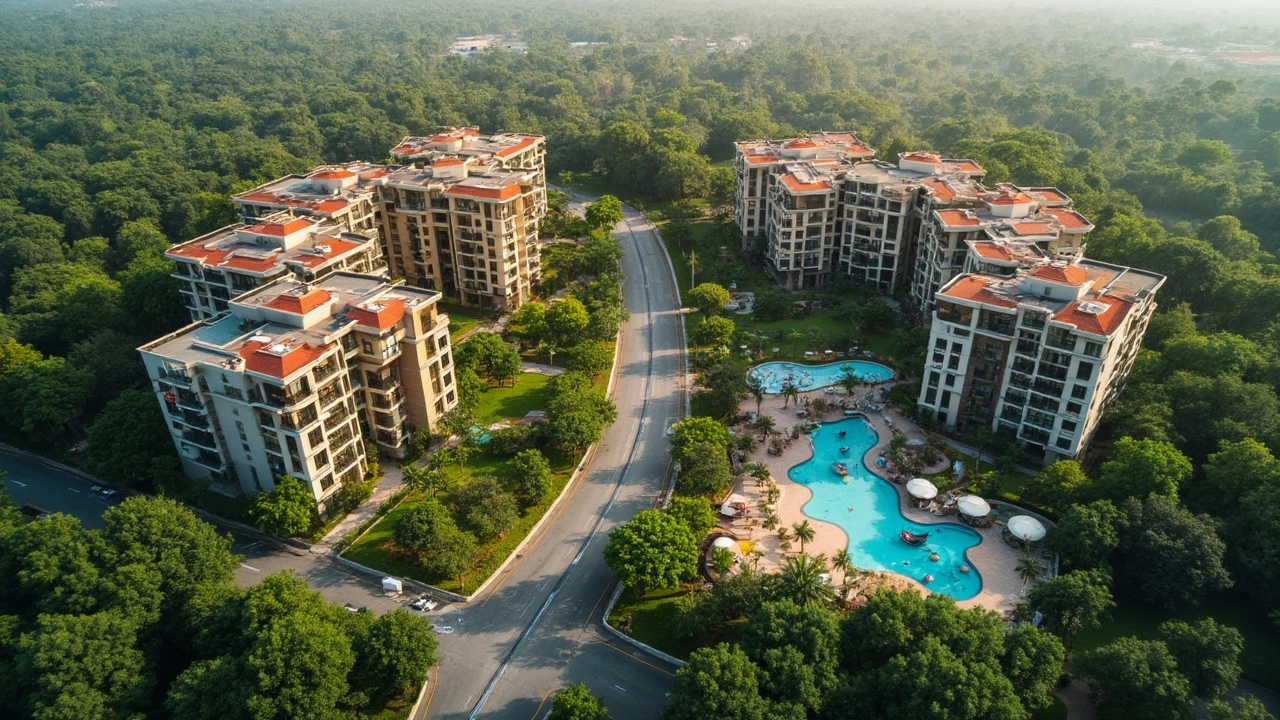Property Costs: What You Really Need to Know Before Buying or Renting
Thinking about a new home? Whether you’re eyeing a 2BHK in Mumbai or a quiet plot in Shriram Chirping Woods, the first question is always the same – how much will it cost? In 2025 the market is moving fast, taxes have shifted, and hidden fees can bite you if you’re not careful. This guide pulls together the most useful info from our recent articles so you can see the full picture and keep surprises out of your budget.
Buying vs. Renting: Which One Saves You Money?
Most people start by comparing a loan payment to a monthly rent. That’s a good first step, but it misses stamp duty, registration fees, maintenance charges, and the cost of a down‑payment. Our "2BHK Flat Cost in Mumbai (2025)" post breaks down these numbers by area, showing that stamp duty alone can add 6‑7% to the price tag. On the rental side, remember that the landlord may ask for three times the rent as income proof, especially in big cities like NYC – see our "What Does 3X Rent Really Mean" article for more.
Don’t forget the long‑term angle. If you plan to stay more than five years, buying usually beats renting because you build equity. But if you’re unsure about the location or job stability, a month‑to‑month lease (covered in our "Month-to-Month Contract" guide) gives you flexibility without the heavy upfront costs.
How to Estimate Total Property Expenses
Start with the headline price – that’s the amount the seller advertises. Then add:
- Stamp duty and registration: varies by state, often 5‑7% of the sale price.
- Legal fees: usually 1‑2% for documentation and title search.
- Home loan processing: banks charge a flat fee or a small percentage.
- Maintenance and society charges: can be a fixed monthly amount or a percentage of the built‑up area.
- Insurance: protects against fire, flood, or other risks – often a few thousand rupees a year.
Our "Top Factors That Boost Property Value in 2025" article shows that upgrades like a fresh paint job or better lighting can raise resale value, helping you recoup some of these costs later.
When you rent, look beyond the advertised rent. Add utilities, parking, and any broker fees (our "How to Avoid Broker Fees When Renting an Apartment in NYC" piece explains how to save here). If you get a Section 8 voucher, the "How Much Can Section 8 Pay for Rent?" guide details the payment limits you can count on.
For investors, the "What Does a 7.5% Cap Rate Mean?" post explains how to calculate ROI based on rental income. Use the same formula to see whether a commercial property’s price is justified, especially if you’re considering a lease‑back or mixed‑use building.
Finally, keep an eye on local rent‑increase caps. In Baltimore, landlords can only raise rent by a certain percentage each year – see the "How Much Can a Landlord Legally Raise Rent in Baltimore City?" article for the exact numbers.
Bottom line: the true cost of property isn’t just the sticker price. Add taxes, fees, and future maintenance, then compare that total to your cash flow and long‑term goals. Use the calculators and checklists in our articles to run the numbers, and you’ll walk into any deal with confidence.

Why Are Condos Cheaper Than Houses? Real Reasons Uncovered
Ever wondered why condos usually go for a lower price than houses? This article breaks down the real reasons behind the price gap. From land ownership and shared costs to building amenities and fees, you'll see what really affects condo prices. You'll also pick up tips on when a condo could be the smarter buy. No fluff, just straight answers to guide your property decisions.




